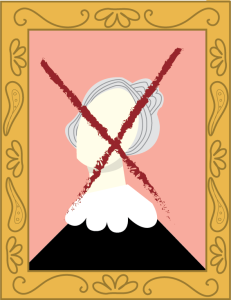OPINION: Periods aren’t feminine, they’re human
November 1, 2019
One adjective, “feminine,” has the power to exclude entire groups of people from receiving the care they need. Pads, tampons and the like are commonly referred to as “feminine hygiene” products, a name that excludes the sizable populations of transgender, gender-fluid and non-binary people who menstruate. But, Always, a Procter & Gamble company that specializes in menstruation products, just took a major step toward inclusive change.
Always is a brand with wide-spread influence as a primary provider of period care known for its sanitary pads. Its products are available in almost every grocery or convenience store, but the company’s packaging has always been obviously feminine.
Oftentimes, the idea of femininity is associated with having a period, which leads to a major lack of representation. For instance, most wrappers containing hygiene products have stereotypical “girly” designs, such as pastel-colored flowers, female-geared affirmations and patterns. Always, however, announced that it would move away from overtly gendered packaging by removing the iconic Venus symbol from its products to become more inclusive.
The Venus symbol is the circle and plus sign used to denote the female sex. Changing the design of something as small as a sanitary pad wrapper may sound trivial, but the support of major companies like Always is essential in the movement toward affordable, accessible and inclusive personal care.
Though Always is not the first commercial brand to move away from gendered period products, it’s important for inclusive period representation to expand past niche companies and into drug stores, supermarkets and convenience shops. Smaller, online companies can be more expensive, not to mention more difficult to access. Little steps from giant influencers, such as Procter & Gamble, can make all the difference for underrepresented groups.
A change in packaging is not a swipe of a magic wand that creates a world of inclusive hygiene, but it’s a good start. After all, periods aren’t just feminine — they’re human.











Jamie • Nov 5, 2019 at 5:23 pm
Honey.
Do not praise P&G. They might be doing a small thing that got people talking, but let’s look at the big picture. They are a h u g e media sponsor. They charge out the ass for menstrual products (they should be subsidized and free btw). They produce so much plastic waste. They do some pretty cruel animal testing. Their brands have used child labor and slavery. Their board and CEOs own us. They own us. They spend millions buying politicians to keep policies just the way they like them – and those politicians are on “both sides” of the “political spectrum.” Please see the big picture here – they are rich and collect more capital every day, and everyone else works, gets paid, and then buys their brands (it’s a monopoly). They funnel money into the government to keep the working class permanently poor so they can go to the Dollar General to buy their brands.
I think everyone is entitled to non-gendered menstrual items, but not like this, and not from them. Reusable cups are the future.